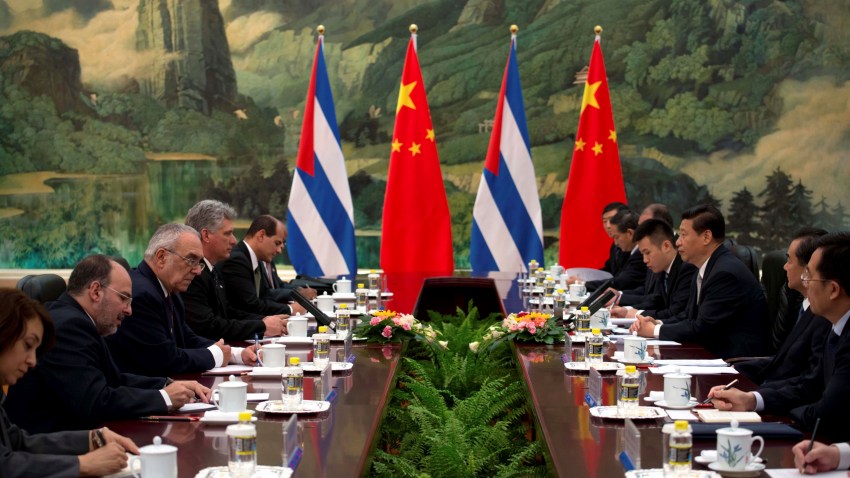Last week, the Wall Street Journal reported that Beijing will pay Cuba billions of dollars in exchange for hosting what the story’s headline called a “Secret Chinese Spy Base” focusing on the United States. The Cuban and Chinese governments denied the report, and the U.S. government said that elements of the story are incorrect. But multiple other U.S. media outlets confirmed the basic gist of the original reporting with their own sources. The New York Times even cited one Biden administration official as saying the base has already been in operation since at least 2019, and that the deal in question is to upgrade and expand it, which the White House confirmed Saturday. Needless to say, members of Congress reacted with fury and concern, demanding hearings on the issue and calling for President Joe Biden to do something.
Unfortunately, the issue sits at the perfect intersection of the hot topic of the moment in Washington—geopolitical competition between the U.S. and China—and the multi-decade stupidity that is U.S. policy on Cuba. And it has taken center stage just as the U.S. presidential campaign is beginning to ramp up. Those three factors mean a public debate in Congress and the media about China’s efforts to build or expand a surveillance base in Cuba is not something that the U.S. political system will handle with particular nuance.
This is the sort of issue that requires a careful balance between legitimately protecting U.S. national security and national interests on one hand, and acknowledging the limits to effective action and the risk of blowback on the other. Instead, it is likely to fuel hysterical debates over pseudo-imperialism and the long-discredited Monroe Doctrine, whereby Washington claimed the Western Hemisphere as a U.S. sphere of influence. Republicans will aim to score political points by painting the Biden administration as being unwilling to act forcefully. Democrats will strive to counter that narrative by adopting a “tough on China” posture. And the domestic politics of Cuba policy will complicate things even further by reviving the stagnant debate about U.S. sanctions against Havana.

